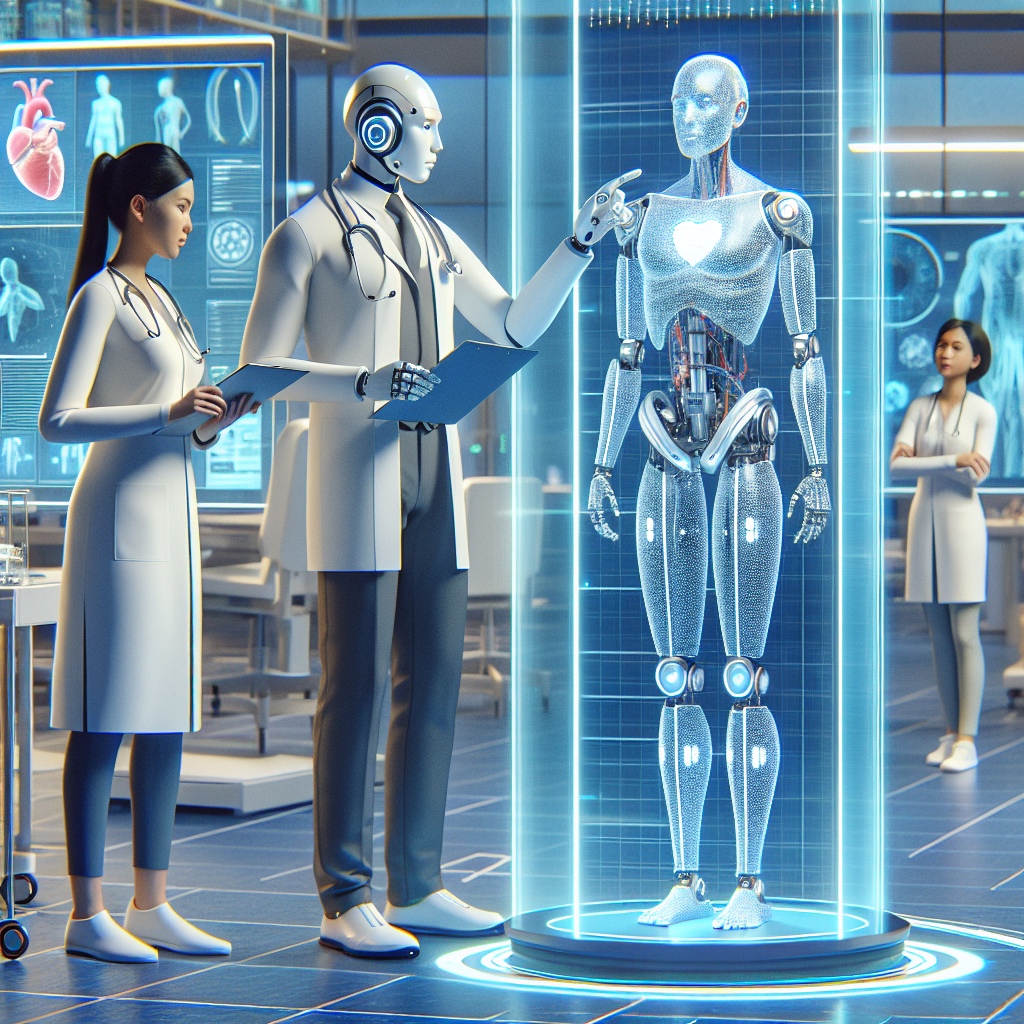Artificial General Intelligence (AGI) has the potential to revolutionize the field of healthcare and medicine in ways we have never seen before. AGI refers to a form of artificial intelligence that is capable of learning and understanding any intellectual task that a human being can. This means that AGI has the ability to analyze vast amounts of data, learn from it, and make decisions based on that information. In the field of healthcare, this could lead to significant advancements in diagnosis, treatment, and overall patient care.
AGI has the potential to improve the accuracy and efficiency of medical diagnoses. With the ability to analyze large datasets of patient information, AGI could help physicians identify patterns and trends that may not be immediately apparent to the human eye. This could lead to earlier and more accurate diagnoses of diseases and conditions, ultimately improving patient outcomes.
In addition to diagnosis, AGI could also play a crucial role in treatment planning. By analyzing genetic data, medical histories, and other relevant information, AGI could help physicians develop personalized treatment plans for patients. This could lead to more effective treatments and better outcomes for patients, as well as reduce the risk of adverse reactions to medications.
Furthermore, AGI could also be used to improve patient care and streamline administrative processes. By analyzing patient data, AGI could help healthcare providers identify at-risk patients and intervene before a medical emergency occurs. Additionally, AGI could help reduce administrative burdens on healthcare providers by automating tasks such as scheduling appointments, billing, and managing electronic health records.
Despite the potential benefits of AGI in healthcare and medicine, there are also concerns about its ethical implications. For example, there are concerns about data privacy and security, as well as the potential for bias in algorithms. Additionally, there are concerns about the impact of AGI on the job market, as the automation of certain tasks could lead to job loss for healthcare professionals.
To address these concerns, it will be crucial for policymakers, healthcare providers, and technology developers to work together to establish guidelines and regulations for the use of AGI in healthcare. This will help ensure that AGI is used ethically and responsibly, while also maximizing its potential to improve patient care.
In conclusion, AGI has the potential to revolutionize the field of healthcare and medicine by improving diagnosis, treatment, and patient care. While there are concerns about the ethical implications of AGI, it is important to work together to establish guidelines and regulations that will ensure its responsible use. By harnessing the power of AGI, we can unlock new possibilities for advancements in healthcare and ultimately improve patient outcomes.
FAQs:
Q: What is AGI?
A: AGI stands for Artificial General Intelligence, which refers to a form of artificial intelligence that is capable of learning and understanding any intellectual task that a human being can.
Q: How can AGI improve healthcare and medicine?
A: AGI can improve healthcare and medicine by analyzing large datasets of patient information to improve diagnosis, treatment planning, and patient care.
Q: What are the ethical concerns surrounding AGI in healthcare?
A: Ethical concerns surrounding AGI in healthcare include data privacy and security, bias in algorithms, and job loss for healthcare professionals.
Q: How can we address the ethical concerns surrounding AGI in healthcare?
A: We can address the ethical concerns surrounding AGI in healthcare by establishing guidelines and regulations for its use, and working together to ensure its responsible use.
Q: What are the potential benefits of AGI in healthcare?
A: The potential benefits of AGI in healthcare include improved accuracy and efficiency of medical diagnoses, personalized treatment planning, and streamlined administrative processes.

